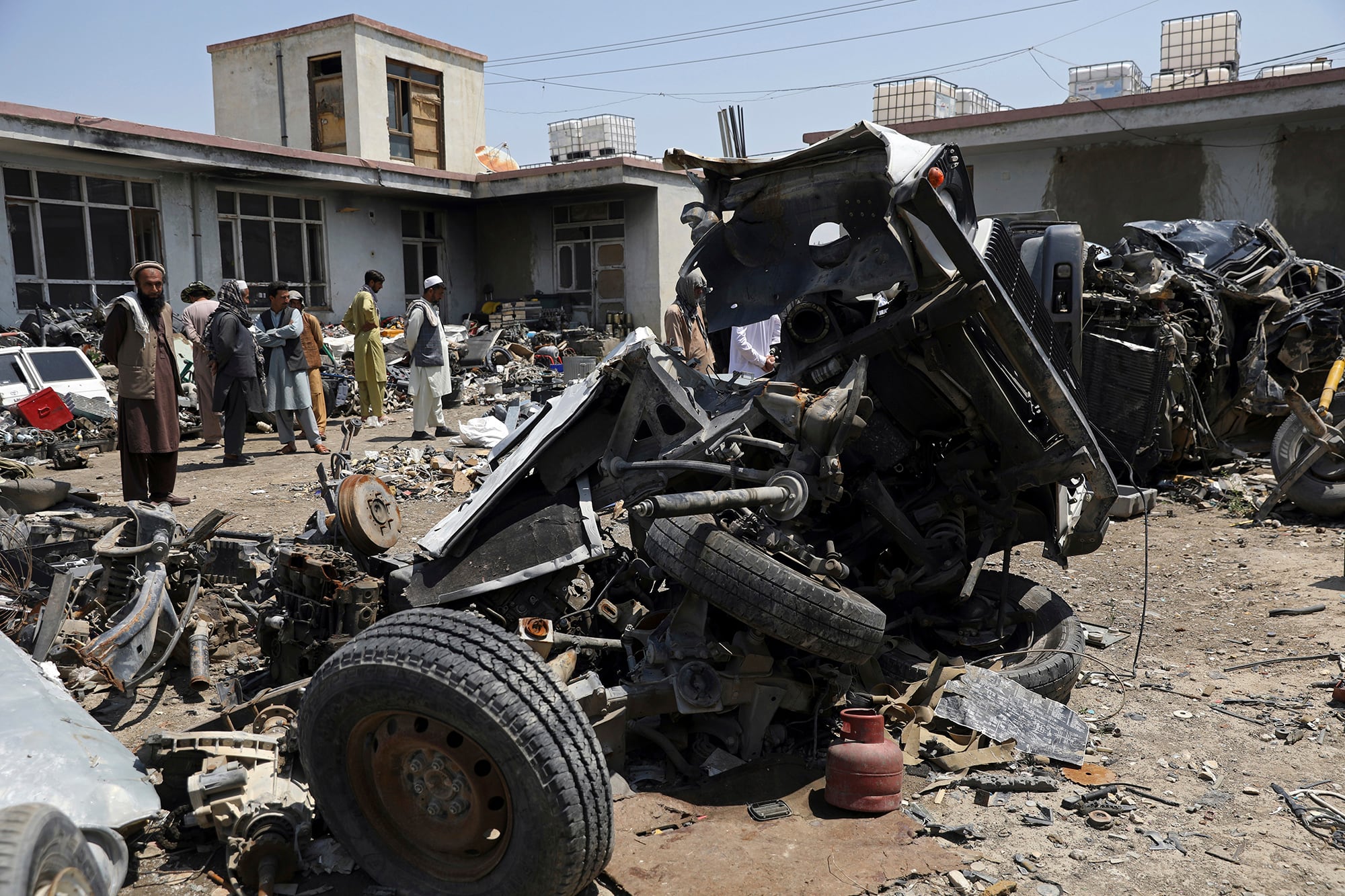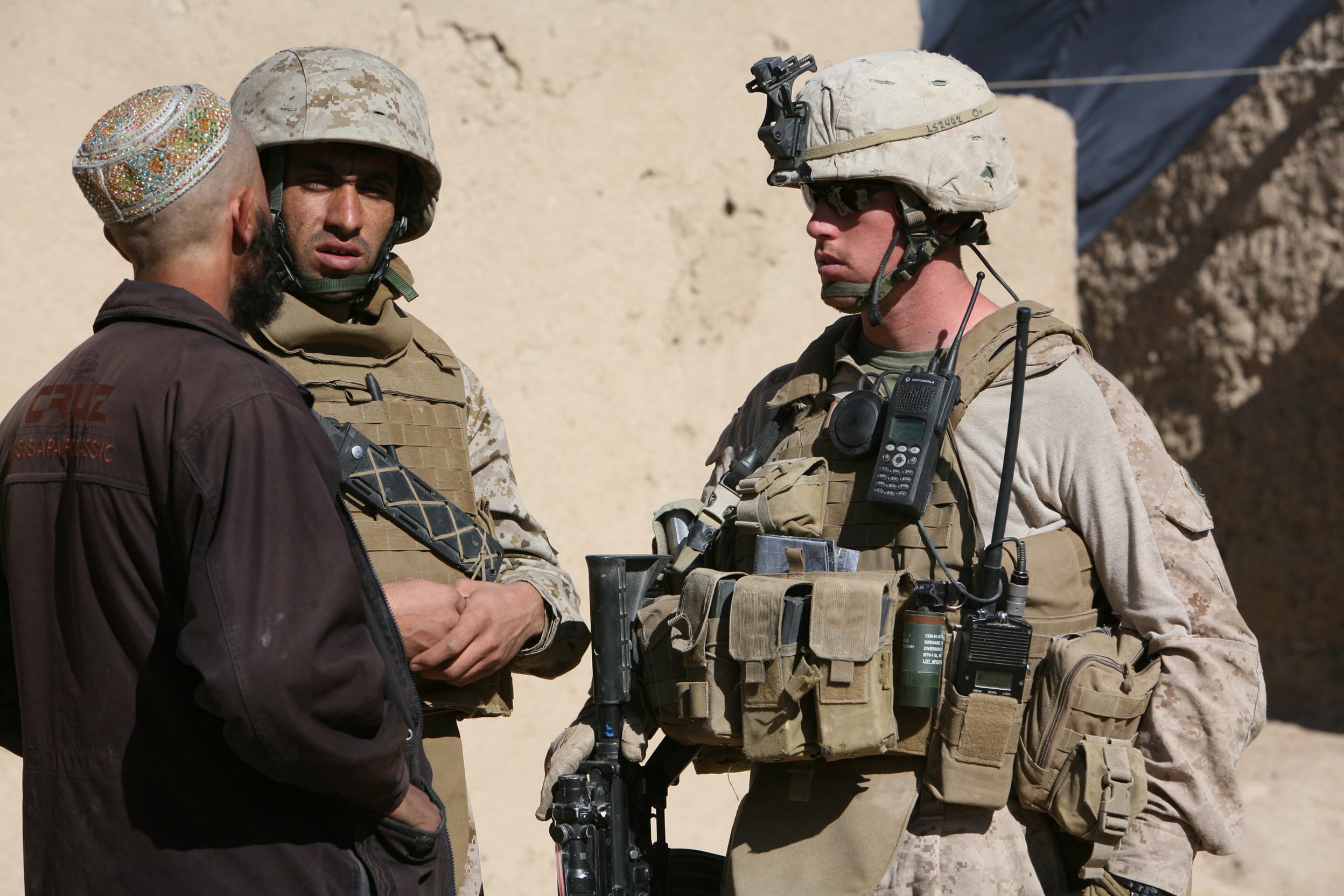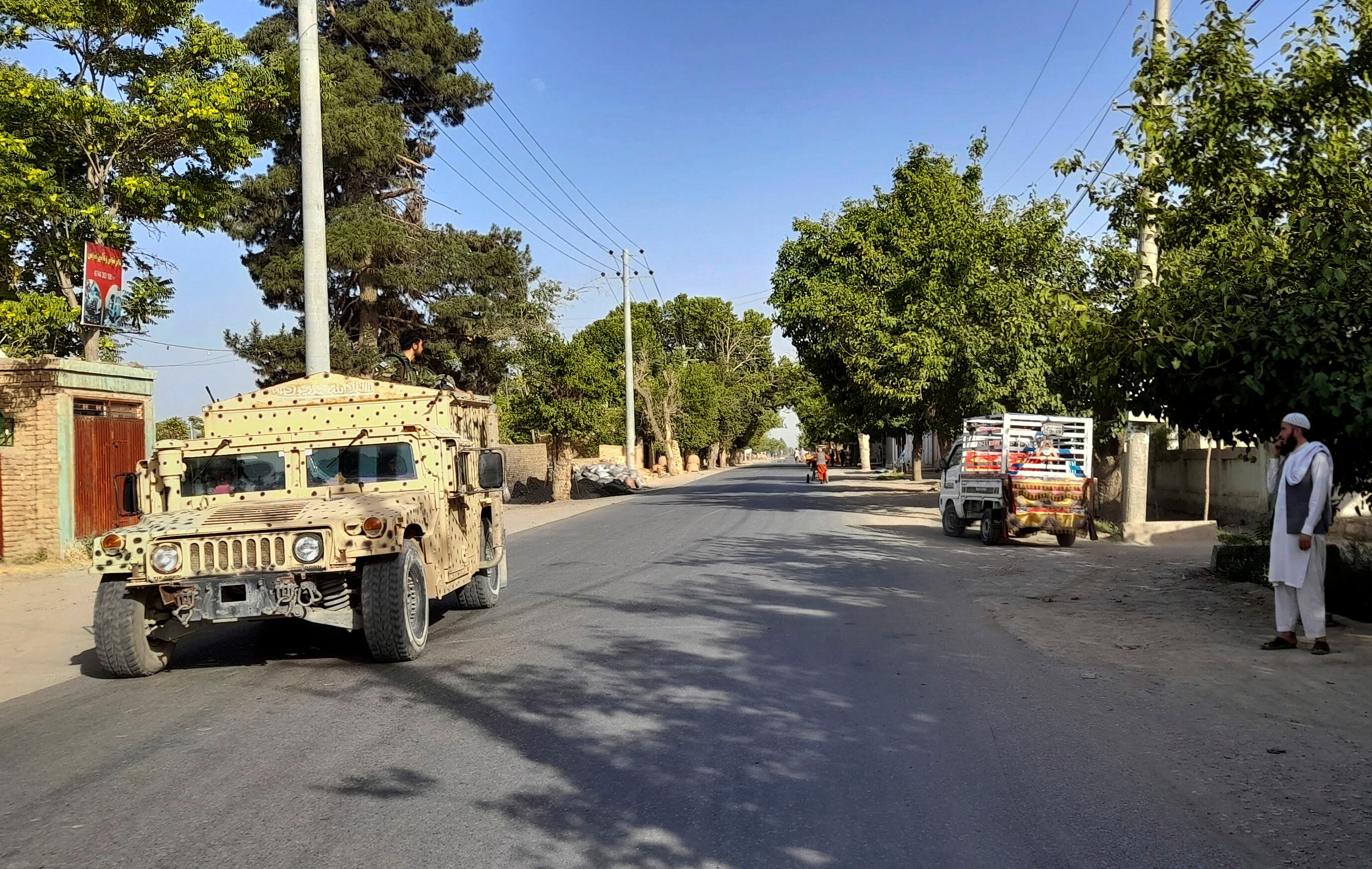As Afghan President Ashraf Ghani prepares to visit the White House this week, Pentagon leaders are emphasizing that plans to withdraw U.S. military forces from the country remain unchanged, despite the worsening security situation.
On Monday, in response to a question about territorial gains by Taliban fighters in recent days, Pentagon spokesman John Kirby said that military commanders overseeing the region are monitoring the security threats but that it has not changed any withdrawal plans.
“It is a dynamic situation,” he said. “We said from the outset that we’re going to treat it as such in and that if there needs to be changes made to the pace to the scope and scale of the retrograde on any given day or in any given week, we want to maintain the flexibility to do that.
“What’s really critical here is that nothing has changed about two things. One, we will complete the withdrawal of all U.S. forces out of Afghanistan, with the exception of those that will be left to protect the diplomatic presence. Two, that it will be done before early September, as per the commander-in-chief’s orders.”
RELATED

On Tuesday, the Associated Press reported that Taliban fighters have taken control of a section of Afghanistan’s northern Kunduz province, the latest of dozens of districts which have fallen to insurgent forces in the last two months.
Ghani, who in recent days announced plans to replace two top defense ministers in an effort to shore up the country’s security, is scheduled to travel to Washington, D.C. this Friday to meet with President Joe Biden. He will be accompanied by Abdullah Abdullah, chairman of the country’s High Council for National Reconciliation.
Over the weekend, White House officials said the meeting would focus on “the enduring partnership between the United States and Afghanistan as the military drawdown continues” and emphasized that America will “remain deeply engaged with the government of Afghanistan to ensure the country never again becomes a safe haven for terrorist groups who pose a threat to the U.S. homeland.”
RELATED

But critics of Biden’s foreign policy say the announcement of a withdrawal schedule for U.S. troops — Biden has said all American military forces will be out of the country by Sept. 11 — has emboldened insurgents in Afghanistan and endangered the stability of the government there.
“It’s getting harder and harder to believe that over-the-horizon support will be enough to help Afghan partners sustain the fight against these terrorist threats,” Senate Minority Leader Mitch McConnell, R-Ky., said in a chamber floor speech Monday. “It’s already clear it would intensify challenges to our own national security.”
Democrats in Congress have largely backed the withdrawal plan, and given no indication they will support plans to slow or delay the schedule.
RELATED

White House press secretary Jen Psaki said that the meeting between Ghani and Biden will also focus on “how we can work together to continue to implement the humanitarian assistance and other assistance that the United States remains committed to, even as we work to draw down our troops.”
Kirby said officials are discussing the possibility of using contractors to help provide additional on-the-ground support for Afghani military forces, but “we have come to no final conclusions about what that is going to look like.”
Ahead of the Friday White House meeting, Defense Secretary Lloyd Austin is expected to testify Wednesday before the House Armed Services Committee, where he is expected to face additional questions on the withdrawal plans and post-withdrawal security strategy.
Leo covers Congress, Veterans Affairs and the White House for Military Times. He has covered Washington, D.C. since 2004, focusing on military personnel and veterans policies. His work has earned numerous honors, including a 2009 Polk award, a 2010 National Headliner Award, the IAVA Leadership in Journalism award and the VFW News Media award.





